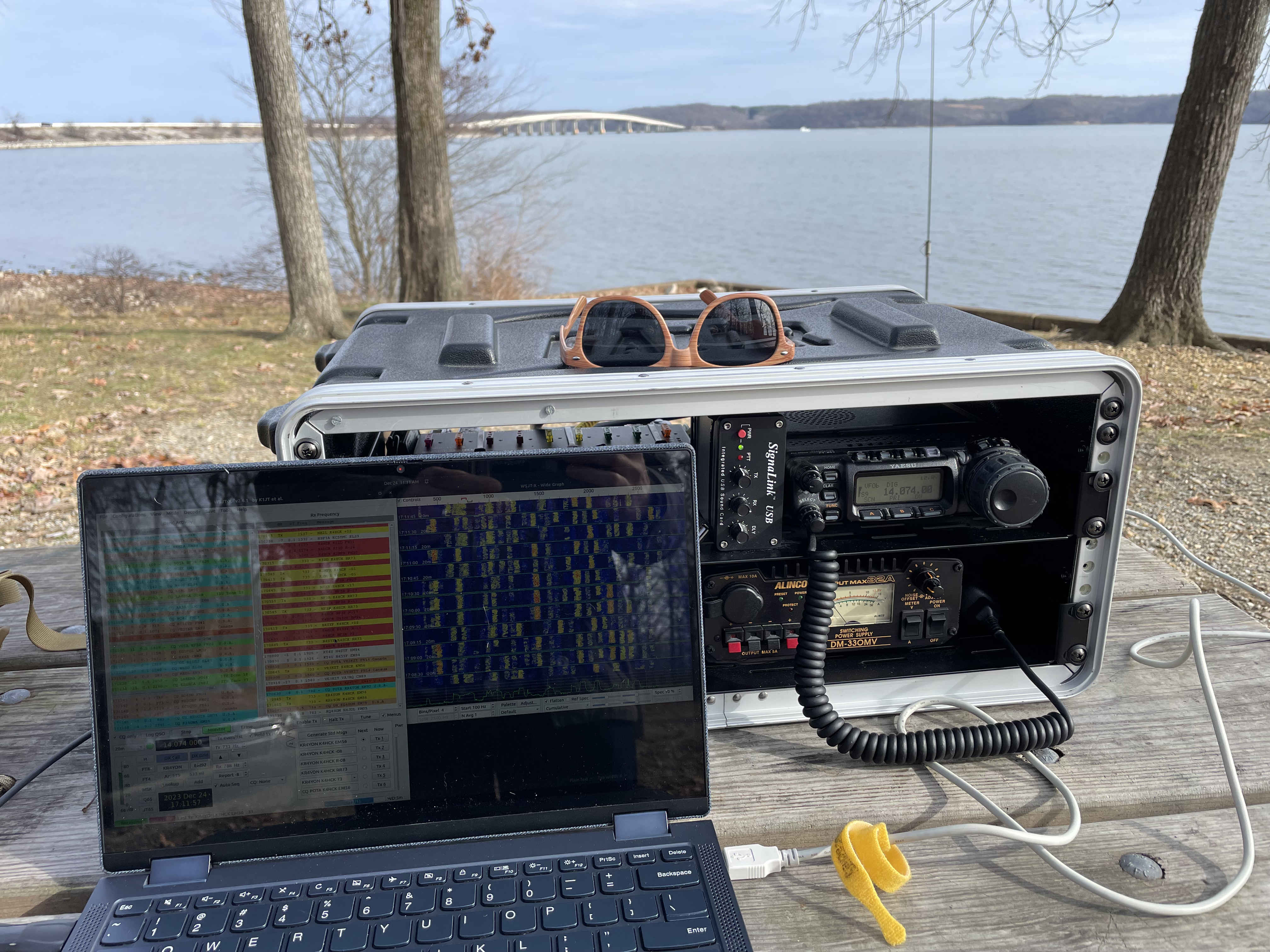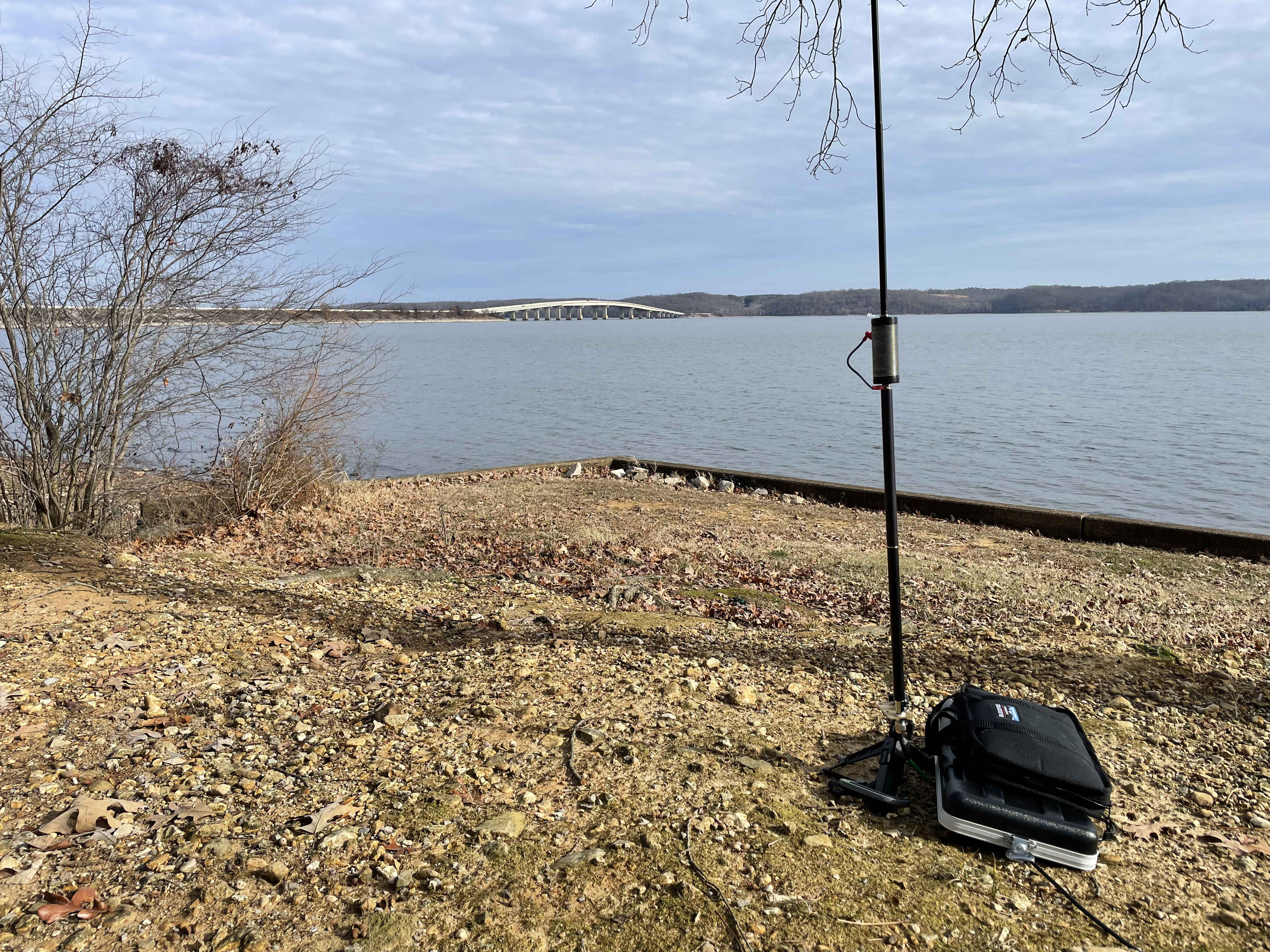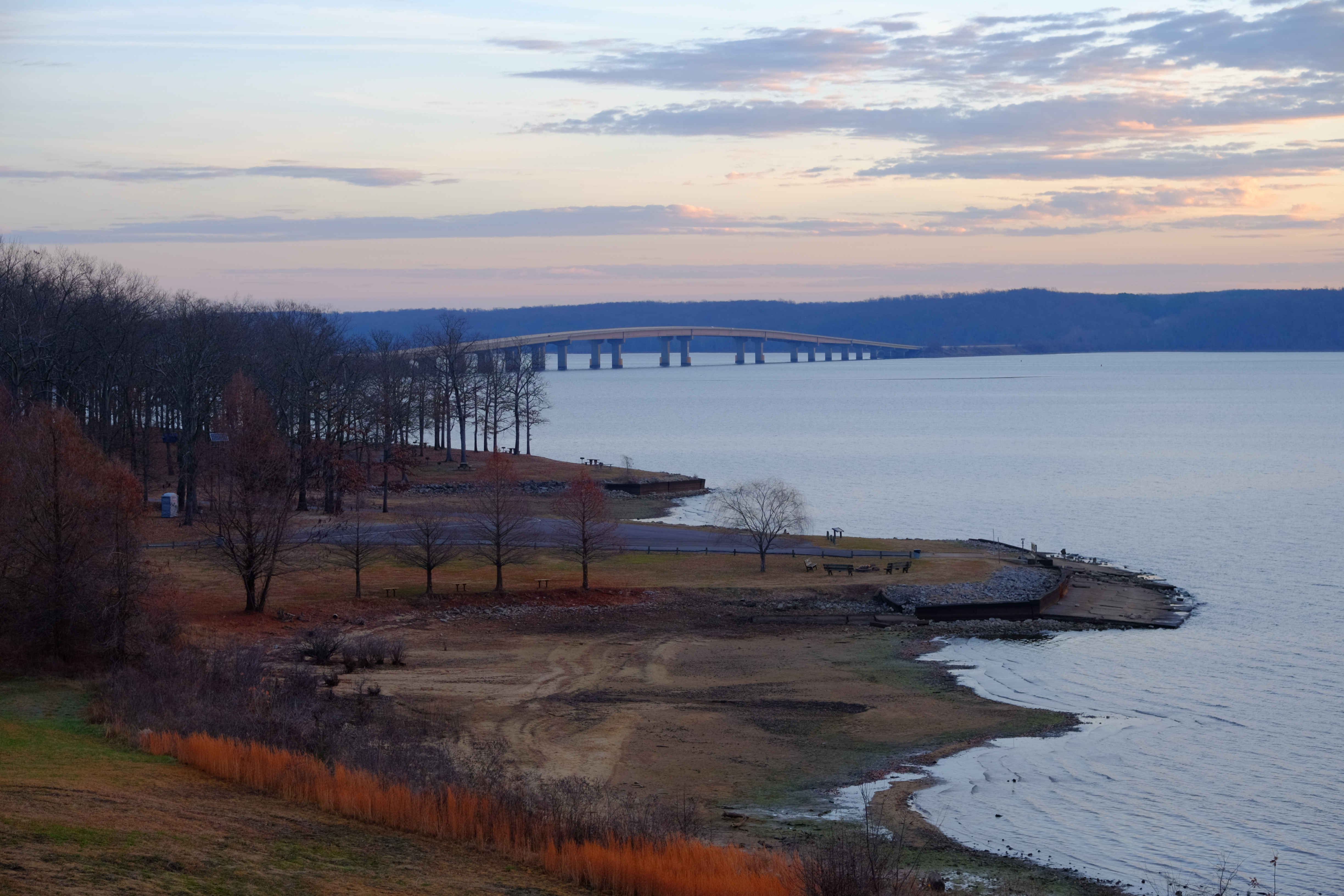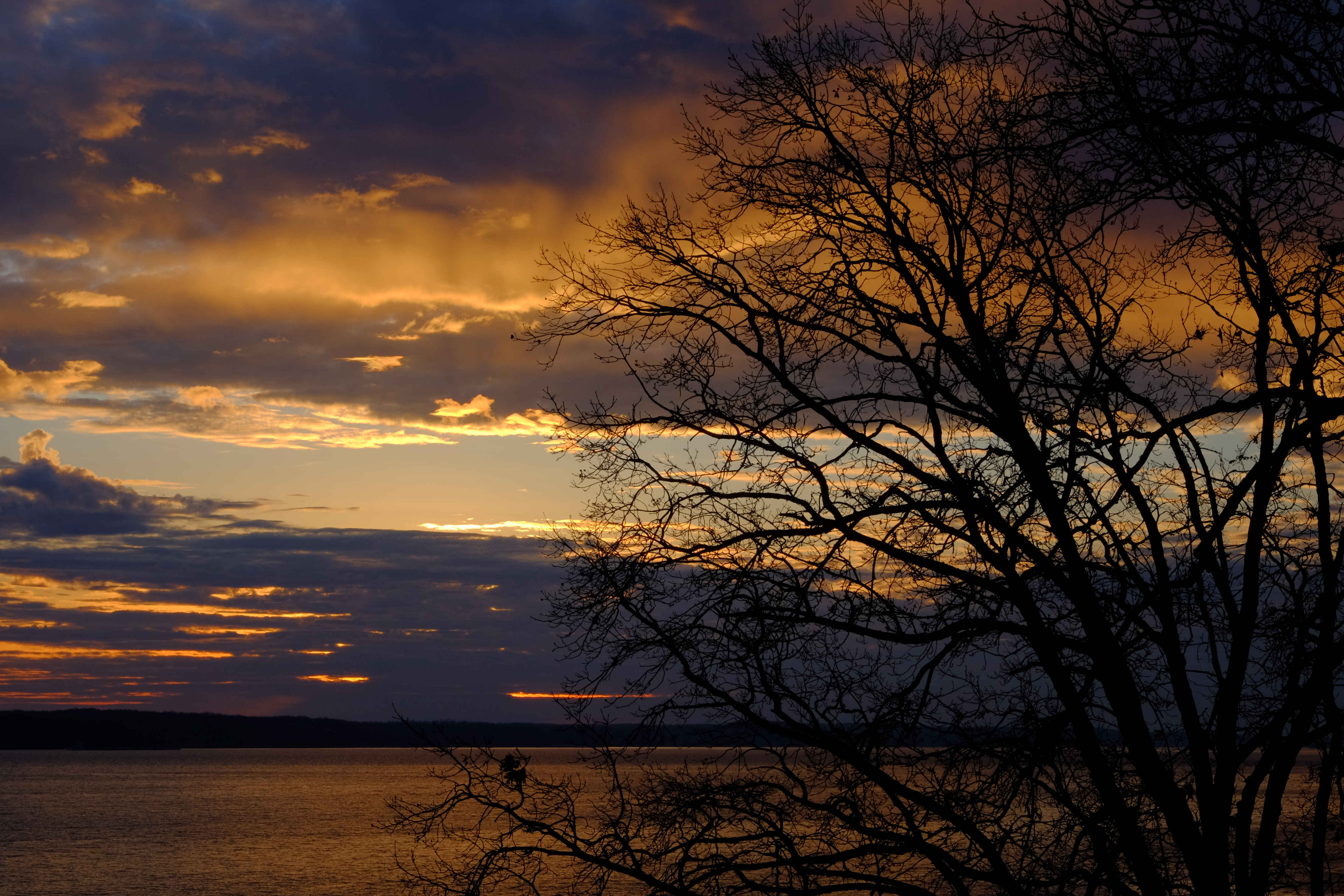First POTA Activation
December 23, 2023
Parks on the Air (POTA) is one of the best things going for the Ham Radio hobby. It's uncomplicated, fun, and the web app that is central to the entire system is a wonderfully modern technical implementation and user experience.
Today, I activated a park for the first time and I can see why so many Hams make activations a regular event. Dedicating 90 minutes outside while playing radio with a nice view of nature is tough to beat.
As far as first activations go, I tried to set myself up for an easy first try. We happened to be staying at Paris Landing State Park (K-2965) for a few days so I knew I would have plenty of time to give an activation a try. Even if I failed the first attempt, I knew I could try again in a few hours or even the next day. Fortunately, everything would work out on the first try.
Weather was just about perfect. 55 degrees, little to no wind, and broken clouds kept the temperature manageable. I'm terrible when it comes to the cold, so this was getting toward the no-go end of things for me! The park didn't have much activity, so it was easy to find a prime picnic bench by the edge of Kentucky Lake. 10 minutes to unload, set up the antenna and radio, and I was ready to get on the air. I had been practicing with a few backyard "activations" leading up to this weekend, so I felt comfortable with the setup process. (Those activations did not go well, but that's another blog post.)
POTA setup overlooking Kentucky Lake at Paris Landing.
The only real hang-up of the day was getting my laptop's clock synced with a time server. I used the laptop just 10 minutes before my activation while connected to a reliable network and assumed the clock was synced up, but that wasn't the case once I started operating. The laptop's clock was around 2 seconds slow compared to other operators on the band, and that was enough to hinder any hopes of an FT8 QSO. Thankfully, my phone (barely) had a data signal and I was able to use its hotspot feature to get a connection to my laptop and get the clock synced. I don't know if the sync service just wasn't running or if the clock drifted that much in the 10 minutes it went unconnected from the internet, but something to account for next time.
Buddipole overlooking Kentucky Lake at Paris Landing State Park.
From backyard testing I knew the Buddipole antenna works well on 15 meters so I started there. It was slow going at first and I wondered if I'd be able to get the 10 required QSOs to get full activation credit, but ended up landing all 10 required QSOs within 37 minutes. I budgeted 90 minutes so with my remaining time I switched over to 20 meters and worked 7 more stations over the next 15 minutes. Of the 17 total QSOs operating at 5 Watts, I would estimate another 5 QSOs that I wasn't able to complete. Interestingly, the final QSO map favored the east cost of the US.
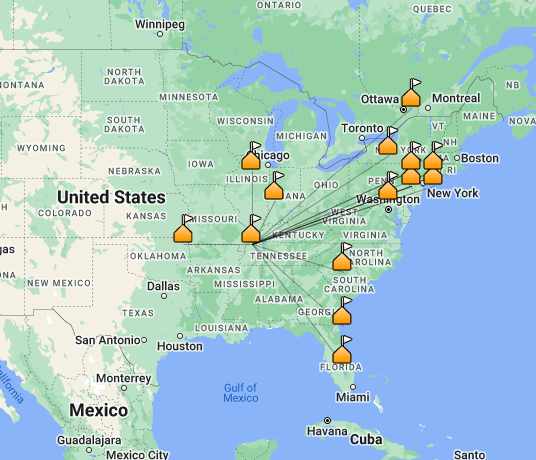
Activation QSOs mapped.
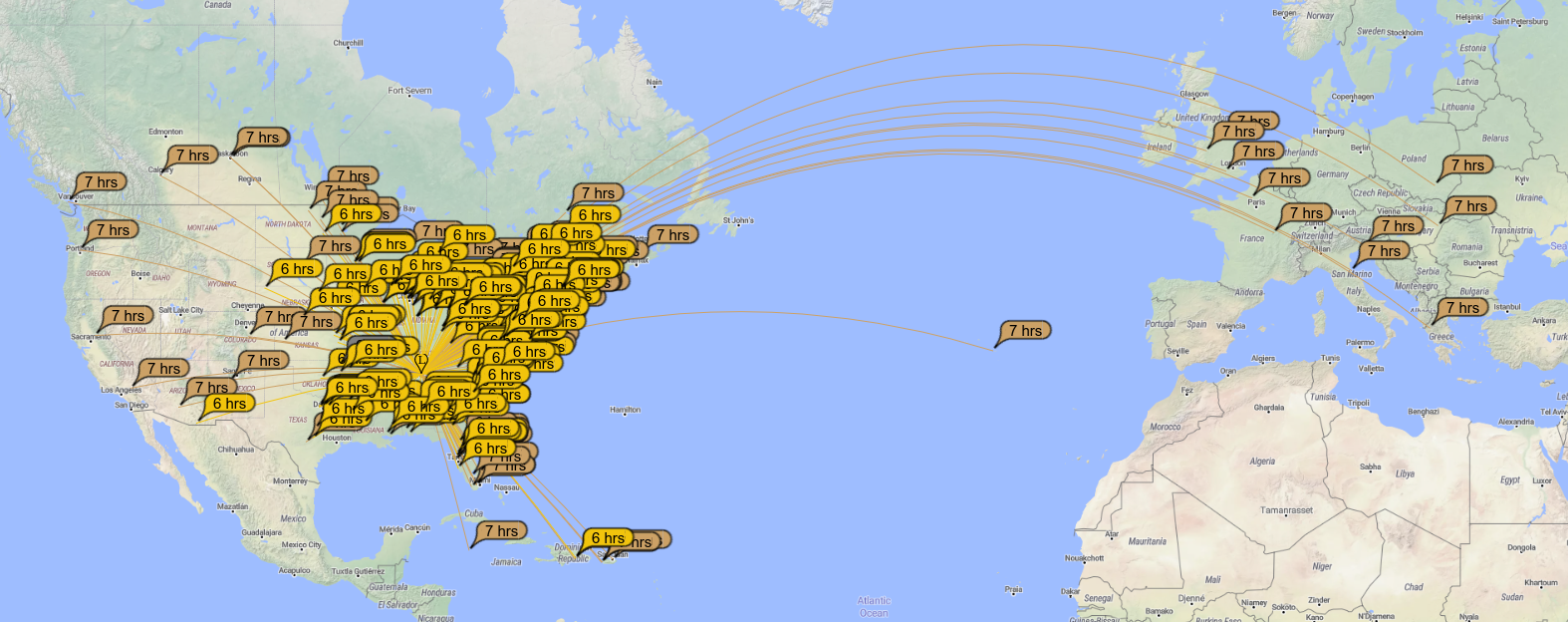
Signal reports during my activation.
All-in-all, this activation went very well. The few bumps were relatively easy to overcome. Had I not done a few practice runs in the backyard over the last couple weeks, this would not have been successful at all. I learned a lot from those test runs. For future activations, I think it's time to slim down my overall setup. The Gator Box works well, but I have a bunch of extra equipment in there because it usually sits on my desk at home as my main station. The heavy power supply, power distribution module, Raspberry Pi, and associated cabling could all go. Something to tweak in the coming months.
Thanks to all the POTA supporters out there! This was a fun activity and I definitely see myself doing this again.
For those interested, this is my gear list for this particular activation:
- Radio: Yaesu FT-857D
- Antenna: Buddistick PRO
- Antenna Tuner: MFJ-929 (Shouldn't need this, but I haven't yet taken the time to test without it.)
- Battery: Bioenno LiFePO 3A/36 Watt-Hours
- Case: Gator Case 4U Audio Rack, Shallow
Highway 79 bridge over Kentucky Lake at Paris Landing State Park.
Sunrise at Paris Landing State Park.
